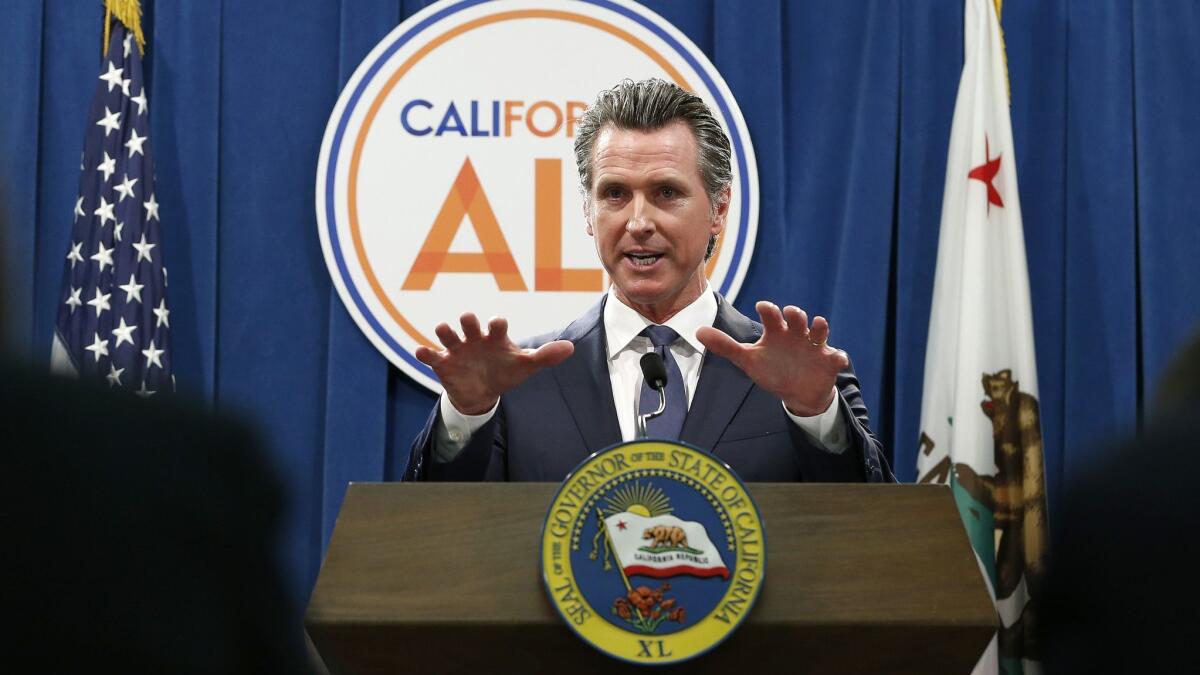New $300-a-week unemployment benefits coming soon, California officials say

- Share via
SACRAMENTO — Millions of Californians who are out of work during the pandemic will soon receive a $300 weekly supplemental unemployment benefit retroactive to Aug. 1, state officials said Thursday.
The Federal Emergency Management Agency approved California’s application for $4.5 billion to cover at least three weeks of supplemental benefits after a $600 weekly payment expired last month.
California’s Employment Development Department will begin processing payments for eligible people and sending out payments during the week of Sept. 7, agency officials said Thursday.
“These benefits are critical for the basic security of families and communities and for our economy, which have been so devastated by the virus and its financial impacts,” California Labor Secretary Julie A. Su said in a statement. “As we modernize and strengthen the state’s unemployment insurance delivery system, we will continue to leverage any additional resources the federal government makes available.”
The $300 payment will be available for Californians who are currently eligible to receive at least $100 in weekly state unemployment benefits and have certified that they are unemployed or partly unemployed due to disruptions caused by COVID-19, according to the state Employment Development Department.
While Congress has deadlocked over a proposal to extend the previous $600 benefit, President Trump signed an executive order on Aug. 8 allocating $44 billion in existing federal emergency funds to states to provide $300 per week.
California was the 18th state to win FEMA approval to participate in the program.It was set up to possibly run through Dec. 27, but only the first three weeks have been allocated, with future weeks dependent on the availability of federal funds.
The payment amount and the possibility that funds may run out after three weeks concerns advocates for renters including George A. Warner, an attorney with the group Legal Aid At Work in San Francisco.
“The Trump administration’s `lost wages assistance, which is not the same as unemployment insurance, is letting Californians and the American people down,” Warner said, calling $300 a week “untenable for unemployed families given the devastating impact of COVID on the job market.”
He said the requirement that jobless people qualify for $100 or more in weekly benefits leaves out those most in need of help.
“These half measures hurt working families, our state’s economy and our communities. The program doesn’t meet the gravity of this moment,” Warner said.
He added that because the program is guaranteed for only three weeks, “it will take states far too much time, money, and resources to implement at a time they are already dealing with an unprecedented number of claims.”
State officials initially said their antiquated computer system might require up to 20 weeks to be reprogrammed to handle the new federal allocation, but the program was simplified by Washington.
Originally, federal officials talked about a formula in which states would match the $300 with $100 in state funds, but that requirement was relaxed to allow existing state unemployment to count toward the match.
Still, there is concern that low-income residents who need financial help the most are being left out of the supplemental benefit program because it requires recipients to already be receiving $100 a week in state unemployment.
The announcement that claims will be processed starting the week of Sept. 7 came a few days after state lawmakers renewed criticism of the EDD during a public hearing on continuing problems that have left hundreds of thousands of unemployed Californians without benefits.
Assembly members including Democrat Adrin Nazarian of Los Angeles said during a hearing Monday that the agency has previously experienced the same problems and he is disappointed that the issues were not resolved.
“We were extremely ill-prepared,” Nazarian told EDD Director Sharon Hilliard during a Capitol hearing of an Assembly budget subcommittee on administration.
Hilliard told the lawmakers that technology improvements have allowed the department to pay out billions of dollars in benefits, but she acknowledged that more needs to be done.
“It’s not acceptable,” Hilliard said of the current situation. “What we have been able to accomplish is quite incredible, but it’s not good enough.”
More to Read
Sign up for Essential California
The most important California stories and recommendations in your inbox every morning.
You may occasionally receive promotional content from the Los Angeles Times.











